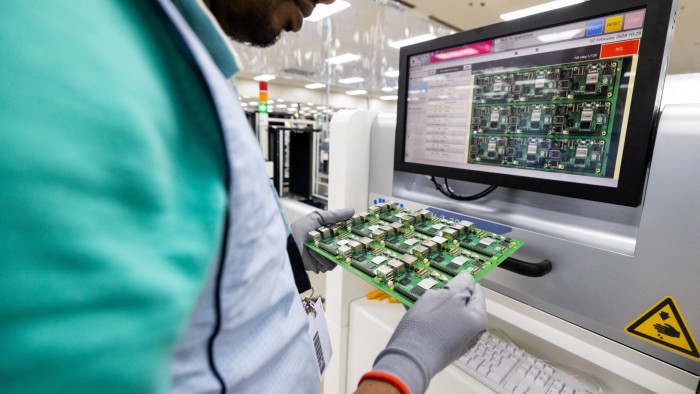Unlock the Editor’s Digest for free
Roula Khalaf, Editor of the FT, selects her favourite stories in this weekly newsletter.
It is hard being everyone’s favourite. Raspberry Pi is both last year’s UK initial public offering success story and the poster child for British start-ups. And that is on top of its day job making small, cheap computers. Its high profile has juiced up its share price, however, making it hard to find value in the stock.
The Cambridge-based maker of simple computers on single circuit boards had a cult following among enthusiasts well before its float in June. Its products are deployed in all sorts of devices including livestock trackers and digital signs. Now, helped by its new visibility, its products are making headway with big manufacturers.
Full-year earnings published on Wednesday included a drop in sales as oversupply replaced shortages as an industry-wide problem, leading to a build-up of inventory that the company is confident has passed.
A halving in pre-tax profits never looks good, but much of the hit came from outside its main operations and included the cost of its IPO and of new employee share schemes. Raspberry Pi’s shares had fallen one-third from a late-January peak but rose on the update, suggesting investor optimism is returning.
While the company itself is enticing, the shares are on most measures expensive. Boss Eben Upton presented a confident outlook on Wednesday but his emphasis seemed to be on gradual growth. Words used included steady, solid and sustainable — hardly market rocket fuel. Raspberry Pi is trading on an enterprise value of 28 times 2025 ebitda of about $44mn, on estimates sourced from LSEG and S&P Global Capital IQ. Use 2026 forecasts, and that is 21 times. The Nasdaq Composite trades on 16 times the next 12 months’ ebitda.
Raspberry Pi’s forecast ebitda growth — of 24 per cent a year on average for 2026 and 2027 on S&P Capital IQ estimates — explains part of its valuation. Beyond that, however, sales and profits would need to exceed analysts’ expectations. That is not impossible given the company is relatively new to them. They are still getting to grips with, say, management’s approach to pricing products and their ability to deliver the deals they expect with bigger, brand name manufacturers.
Yet it is hard to escape the conclusion that Raspberry Pi’s stock is benefiting not only from its business success, but also from its special place in the UK corporate landscape. Everyone loves a good narrative, investors included.
